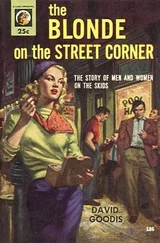David Lindsey - The Face of the Assassin
Здесь есть возможность читать онлайн «David Lindsey - The Face of the Assassin» весь текст электронной книги совершенно бесплатно (целиком полную версию без сокращений). В некоторых случаях можно слушать аудио, скачать через торрент в формате fb2 и присутствует краткое содержание. Жанр: Триллер, на английском языке. Описание произведения, (предисловие) а так же отзывы посетителей доступны на портале библиотеки ЛибКат.
- Название:The Face of the Assassin
- Автор:
- Жанр:
- Год:неизвестен
- ISBN:нет данных
- Рейтинг книги:4 / 5. Голосов: 1
-
Избранное:Добавить в избранное
- Отзывы:
-
Ваша оценка:
- 80
- 1
- 2
- 3
- 4
- 5
The Face of the Assassin: краткое содержание, описание и аннотация
Предлагаем к чтению аннотацию, описание, краткое содержание или предисловие (зависит от того, что написал сам автор книги «The Face of the Assassin»). Если вы не нашли необходимую информацию о книге — напишите в комментариях, мы постараемся отыскать её.
The Face of the Assassin — читать онлайн бесплатно полную книгу (весь текст) целиком
Ниже представлен текст книги, разбитый по страницам. Система сохранения места последней прочитанной страницы, позволяет с удобством читать онлайн бесплатно книгу «The Face of the Assassin», без необходимости каждый раз заново искать на чём Вы остановились. Поставьте закладку, и сможете в любой момент перейти на страницу, на которой закончили чтение.
Интервал:
Закладка:
“How long’s it been?” Kevern snapped.
Bern shook his head. “Ten, fifteen minutes.”
Without taking his eyes off Bern, Kevern reached out, dragged over a chair, and sat down.
“Let’s hear the story.”
Chapter 39
“The hospital” was how they referred to this dirty building on a dark street in a forgotten colonia near the Benito Juarez Airport. It was a favorite interrogation location for Quito’s men, because at night everyone went inside and locked their doors against the things that happened in the dark. In the deep hours of the night, the featureless street, which always smelled of smoke from God knew where and constantly rumbled with low-flying jets that sprayed their spent lubricants over the colonia ’s flat rooftops, became a wasteland.
Making a tight turn at a narrow intersection of three streets, Mondragon’s driver pulled to the curb under a dying pirul tree and left the engine running. Mondragon stared through his mask at the grim warren of hovels that stretched into the darkness in every direction. He gazed at the dull jaundiced light in the windows of the building across the street while a jet lumbered low overhead, a prolonged whistling, throbbing explosion that made the raw flesh on the front of his head tingle with vibrations.
When it was gone, Mondragon opened the door, got out of the car, and crossed the street to a murky doorway. One of Quito’s guards met him and silently led the way through a junky corridor littered with empty butane tanks, electrical parts, crumpled plastic bottles, and a pile of discarded car batteries that were leaking puddles of acid onto the gritty floor.
They entered a bare room, where Quito and several men were standing around smoking and drinking beer. They were sweaty, taking a break. The only light was a bare bulb hanging from the ceiling, a newspaper shade taped around the cord just above it. The yellow paper threw a stale light through the layers of cigarette smoke that hung in the stuffy air.
Quito stepped aside with Mondragon and led him out another door. Quito’s men were well trained, and they ignored Mondragon as if he were the Invisible Man. They stepped into a kind of breezeway that led into another hallway. On either side of the hallway were two rooms, doors slightly ajar. The light in the rooms, though dim, was lighter than in the breezeway, and Mondragon could see people moving around.
“We found the girl at Domingo Huerta’s,” Quito said. His tie was undone, and his expression was sober with the business of the evening.
“What the hell was he doing?”
“Jude had given Huerta’s girls copies of the pictures of Baida that he had drawn, and he had them asking if anyone had seen this man. These girls were doing this through their family connections, circling several particular families-”
“The de Leons, the Carballidos, the Marmols, the Zubietos… all the people we were in school with.”
Quito nodded.
“And then he gave this piece of paper to Bern.”
Quito nodded again. “And it said, ‘Estele de Leon Pheres.’”
They both paused while another jet lunged off the tarmac, the sound so deafening that it made their hair vibrate. It seemed to go on forever. Quito dragged on the last of his cigarette and flicked it against a wall. Mondragon stepped over and peered past one of the slightly opened doors. In this room, they had been questioning the girl found at Mingo’s. He saw the naked legs and bare shoulders of the young woman tied to a straight-back wooden chair. Her head was thrown back, and she appeared to be unconscious, her long dark hair hanging down over the back of the chair. A guy with an ice pick was walking around, head down, talking to himself.
As the roar began to subside, Quito lighted another cigarette, and Mondragon came back, glancing at the men in the room he had come through a moment ago. They were talking again, one of them tapping his leg with a beer bottle, his middle finger jammed into its long neck to hold it.
Mondragon knew what the girl had been through. With these men, some things were inevitable during the questioning of a woman.
“Estele?” Mondragon asked.
Quito gestured with his cigarette to the other door.
Mondragon stepped over and peered through the slight opening. He hadn’t seen Estele in six or seven years, hadn’t spoken to her in maybe ten. She was handsome, as she had always been. Being older hadn’t changed that.
She was sitting on a wooden bench in the middle of the bare room. Above and just to one side of her dangled another single dingy lightbulb covered with another yellowing newspaper shade. She wore a dark cotton jersey-knit dress, belted at the waist, the tight sleeves pushed back slightly from her wrists. Her dark hair was not long, as if she thought that a woman of her age should not pretend to sexy locks cascading over her shoulders, but the manner in which she wore it was stylish, the sides swept back to accent the graying at her temples. She sat with her legs together and angled to one side, ankles crossed, hands folded in her lap.
Mondragon put his hand on the doorknob, opened the door, and went in, his emotions well cauterized in anticipation of her reaction. She turned around while Mondragon was still in the dark shadows at the edge of the room, and as he approached, she watched, her face changing from curiosity, to consternation, to shock, to repulsion, and then to fear, a sequence of changes that Mondragon had seen over and over during the past two years.
He grabbed the only other chair in the room, a rusty chrome kitchen chair with a cherry red vinyl seat and back. He put it in front of her, but at the edge of the pool of jaundiced light. Then he sat down.
She stared at him in horrified amazement, which even her rigid social correctness could not conceal.
Crossing his legs and then crossing his arms in his lap, he looked at her and modulated his voice in the unlikely event that she might recognize it.
“Do you know why you are here?” he asked.
“Apparently, I’ve been kidnapped,” she said, her voice a mixture of uncertainty and defiance.
Mondragon could almost see her gather her resolve to look directly at him, willfully resisting the natural repulsion she felt. But he saw, too, that her curiosity compelled her to try to figure out what exactly it was that she was seeing in the shadows at the edge of the pool of light.
“Do you remember last week, or the week before, that a young woman visited you and showed you a picture, a drawing, of a man that she was trying to locate?”
There was no hesitation. “Yes, I do.”
“You recognized him.”
“Yes.”
“Who is he?”
She hesitated. “Why?”
“You may not ask me questions,” he said. He knew precisely the right tone to use, and saw its effect in her rigid reaction, as if he had slapped her. Mexico City’s culture of violence made intimidation easy for men like him. People were quick to believe that their luck had finally run out and that they had at last been caught up in the city’s notorious grotesquerie of crime.
“Who is he?” Mondragon repeated.
“Daniel Spota.”
“And…”
“He is the man seeing my sister Carleta.”
“How long has she been seeing him?”
“Off and on for maybe a year.”
“He lives here?”
“He lives in Bogota.”
“You’ve met him? Talked to him?”
“Three or four times.”
Mondragon regarded her a moment. Had she actually been around Ghazi Baida with his new face and not recognized something familiar about him? Had she really been duped? Or was she covering for him? Would she not recognize Mondragon, then? She would have no reason to. After all, Baida thought Mondragon was dead, so if she was indeed collaborating with him, she would have no reason to think of Mondragon. The old days were just that, old and gone, never to return. Ever.
Читать дальшеИнтервал:
Закладка:
Похожие книги на «The Face of the Assassin»
Представляем Вашему вниманию похожие книги на «The Face of the Assassin» списком для выбора. Мы отобрали схожую по названию и смыслу литературу в надежде предоставить читателям больше вариантов отыскать новые, интересные, ещё непрочитанные произведения.
Обсуждение, отзывы о книге «The Face of the Assassin» и просто собственные мнения читателей. Оставьте ваши комментарии, напишите, что Вы думаете о произведении, его смысле или главных героях. Укажите что конкретно понравилось, а что нет, и почему Вы так считаете.












